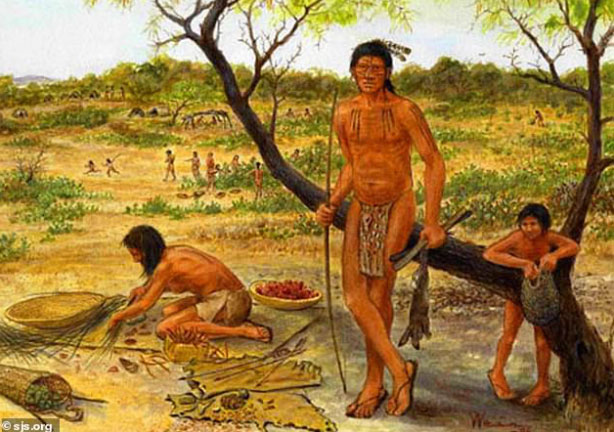Does farming make human ancestors shorter?
Our ancestors became shorter when they switched from hunter-gatherers to farming 12,000 years ago. This conclusion was published by researchers a few days ago in the Proceedings of the National Academy of Sciences of the United States.
The international team of researchers, led by Stephanie Marciniak, associate professor in the department of anthropology at Penn State University (Pennsylvania, USA), analyzed the DNA and made measurements from the skeletons of 167 ancient humans. , is found throughout Europe, including England, Germany, Hungary, Romania, Spain, Poland, Lithuania, Latvia, Croatia, Italy, France, Ireland, Scotland, Bulgaria, and the Netherlands.

Europe's early farmers may then have experienced "poor nutrition and an increased burden of disease", plus other "stressors" of bones such as "lorotic hypersecretion". inhibiting their growth.
The skeletons date back to before, after and during the time when agriculture appeared in Europe 12,000 years ago.
The researchers found that the transition from hunter-gatherer to farming caused the height of ancient humans to decrease by an average of 3cm. Specifically, the average height of ancient humans in the Neolithic period was significantly lower than that of humans in earlier periods.
Shorter height is an indicator of poorer health, meaning that the ancient people did not receive enough nutrition to support the proper development of the body.
According to Associate Professor Marciniak, recent scientific and archaeological studies have tried to find out the influence of DNA on height.
In this new study, the team used bone measurements of ancient individuals, combining genetic and lifestyle studies to find answers to the questions that exist around the transition from hunting to hunting. catching and gathering to sedentary farming had no impact on height and mobility.
The transition from a hunter-gatherer lifestyle to a sedentary agricultural lifestyle did not occur simultaneously across Europe, but in different places at different times.
However, this result is "shaken" and becomes unconvincing when it comes to genetic factors. In fact, some people may be taller than others not because of their environment, but because they inherited their height from their ancestors. According to many scientific studies, 80% of height is determined by genetic makeup and only 20% by environment.
Talking about this issue, Mr. Marciniak said that the reasons for the shorter early farmers included a lack of nutrition (due to a less varied diet than hunter-gatherers) and increased pathogens due to greater population density, sedentary lifestyle and proximity to livestock.
At the same time, regional movements from East to West led to ancient groups of people with different genomes living together.
"Our conclusions represent only part of the picture. More in-depth and extensive studies are needed to see what is behind the reduction in height achieved relative to predicted genetic height during transition. to work in agriculture," said Mr. Marciniak.
Even so, Mr. Marciniak's team says they believe their approach is adaptable to past human health research and can be applied in other contexts.
- This horror creature turns out to be the oldest human ancestor
- Why does autumn make you sick?
- New shocking disclosure of human ancestors
- Why do the ancient ancestors of human beings walk on two legs?
- Prove human ancestors of Asian origin
- Earthquakes in Japan make the day shorter
- Carnivorous dinosaurs make people vulnerable to ultraviolet rays
- Sexual revolution of human ancestors
- The reason the human ancestors gave up cannibalism
- Human ancestors are jellyfish?
- This is a human face if evolved from other animals that are not apes!
- Human ancestors can walk with their legs but most still live on trees
 Discovered an ancient centipede fossil 99 million years old
Discovered an ancient centipede fossil 99 million years old Discovered bat-like dinosaurs in China
Discovered bat-like dinosaurs in China Discovered a 200-year-old bronze cannon of the coast
Discovered a 200-year-old bronze cannon of the coast Discover 305 million-year-old spider fossils
Discover 305 million-year-old spider fossils